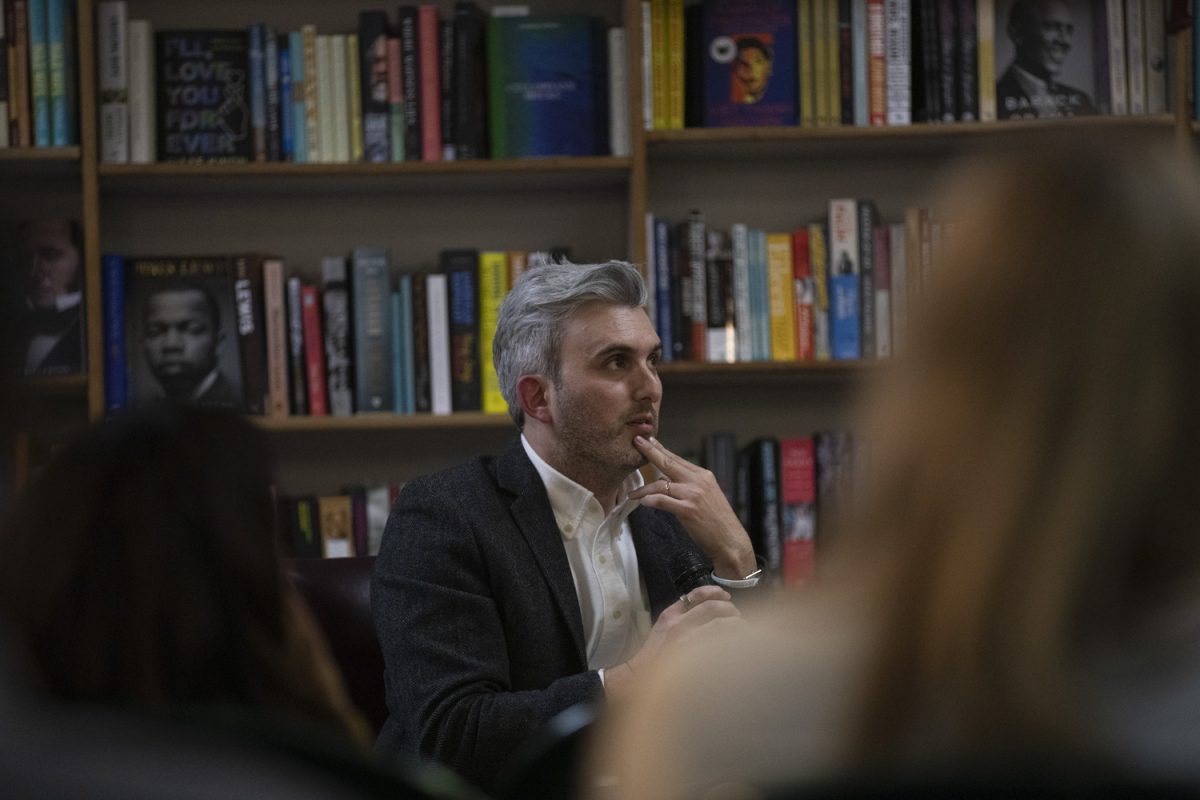Prairie Lights hosted author and Writer’s Workshop alumnus Stuart Nadler to read and discuss his latest novel, “Rooms for Vanishing,” with author Eula Biss on March 31. The novel centers around a Jewish family from Vienna being separated from one another during the war.
Nadler graduated from the Iowa Writers’ Workshop in 2008, where he was awarded the Truman Capote Fellowship and Teaching-Writing Fellowship. He teaches fiction in the MFA program at Bennington College.
This interview has been edited for length and clarity.
The Daily Iowan: Why did you decide to join the Writers’ Workshop?
I applied because it was — and still is — the best program in America, and I wanted a chance to write around the best writers in America and to see if I could develop my work in this environment. I think I knew as a younger person that it would benefit my work to come to a place like this.
What is your writing process?
I write most every day and I don’t really show my work to anybody until I think I have a draft of something. I typically work on two things at the same time. Usually, I work on a longer piece like a novel and then short stories.
What inspired you to write “Rooms for Vanishing”?
The impulse for this book came out of the idea of the way we think and talk about stories and the story of history. I had become consumed with the consequence of what happens when we superimpose the structure of narrative onto history and what that does both to the story and our understanding of the history of that story.
In the case of this book, which all takes place in the aftermath of the Holocaust, I was interested in what happens to stories of catastrophe, calamity, or genocide when you affix this narrative arc onto them. I had become consumed with the idea that these arcs were alive, that these structures, these shapes that you learn in a class were alive, and there’s a social consequence in believing that the story could fit in that shape.
This book is structured so that there are four people in this family, and in each section of the novel, they all get to narrate. When they do, they’re the only survivor of their family. So, the characters are both alive and dead at the same time.
I wanted to think about creating an object that worked in two ways. If you knew the history, you would read this book and recognize all the unreality that I’m playing with. I’m playing with ghosts and doppelgangers, and you would consider that for what it is.
If you didn’t believe what I was telling you about the story, that you didn’t believe that the characters were dead or didn’t understand the history that I was trying to write about, that you would hold out hope and that all the unreal things in the book would make you look a little closer at the story I was trying to tell.
What do you want the readers to take away from your novel?
What I would hope is that a reader is open to the experience of this book, which is a big and weird and sad, and occasionally emotionally demanding novel.
As an author, what advice do you have for aspiring writers?
I teach young writers and beginning writers and I often tell them to take their work seriously and to write the work that they want to read.
I think the mechanism of publishing often tells readers that they have to hunt for the thing they want, and so much of consumer culture is about checking lists and that consumer lists define the book that’s set for you as if there’s a personal algorithm that is going to point you towards what you want. For the writer, it’s about writing the book that you want in the world that only you can write.



